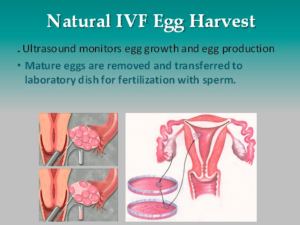The Cost of Infertility

There is no denying that infertility has a significant impact on all areas of your life. It affects you physically, mentally, emotionally and even socially. It takes a huge amount of energy and effort to try to stay balanced and hopeful throughout the ups and downs of this journey. From time to time, I find myself thinking – “I’d never imagined that this is how my path to parenthood would turn out.’
One of the somewhat unexpected consequences of infertility that I feel is rarely discussed, is its financial implications.The cost of fertility support and medical intervention places a massive strain on so many couples. Depending on your location, you may be fortunate enough to qualify for a fertility relief fund or to get cover via your national health benefits. However, in many countries, medical insurance excludes cover for fertility drugs and fertility treatment. This means that couples who opt for assisted fertility treatments end up paying out of pocket, a harsh reality that can be a source of major stress when you are just not sure how you are going to afford it.
In a recent article on the online magazine site, Very Well Family, fertility advocate and author, Rachel Gurevich, wrote that:
“…because infertility can be very expensive, tension over finances is common. Co-pays, fertility tests and treatments not covered by insurance, travel to and from fertility clinics, lost work time due to procedures and appointments—all of these may lead to financial strain.”
She added that some of the possible sources of stress in this context include things such as:
“disagreements over whether to pursue treatment (due to costs); whether and how to borrow money; whether or not to ask friends and family for financial help (like through crowdfunding); and whether to skip treatments and go straight to adoption (which is also expensive)”.
It is clearly a very complex situation. So, how does one find a happy and healthy medium in the midst of this particular struggle?
As a starting point, one thing that I have learnt is that it is very important to ensure that you and your spouse have honest and clear communication around your fertility situation, and also about the resultant impact this has on your finances. It is integral for you both to be clear about the space you are in, what you are willing to work on or what kinds of compromises you are willing to make in order to meet your fertility goals. Good communication and a mutual understanding provides you both with the grounded foundation that you need to prevent confusion and unnecessary conflict. It also makes it easier to then focus your energy on working together to find creative solutions around funding your fertility treatment.
By way of financial solutions, there are various approaches for couples to consider depending on what their needs are and what they feel most comfortable with. What this looks like differs from person to person. It could mean reevaluating your lifestyle and living on a tighter budget for a while for some, exploring additional income options for others or downsizing your current house or selling one of your cars to lower expenses for some people. A few couples decide to go the crowdfunding route and turn to family and friends for assistance, while others investigate financing options since certain fertility clinics do offer payment plans where you are able to contribute monthly installments over a period of a few months or a year. That helps make the cost more manageable. Options such as fertility treatment loan funds exist as well. So it is worth investigating or booking a consultation to find out more about what kind of support your fertility clinic might be able to offer.
Personally, my husband and I prefer doing what we can to reduce our living costs and save more, even if it may take us a bit longer to reach our goal. We’re uncomfortable with the idea of creating debt, so our approach has been to do things like take on freelance work for extra income. As a hobby, I also upcycle old furniture and resell it sometimes. We curb our spending on certain things. We only have one car and will delay getting a bigger house with a more expensive mortgage another year or two, perhaps even until after we conceive our baby. Taking these steps has helped us feel more empowered. We have peace of mind knowing that we are working towards our fertility goals together.
In Judith C Daniluk’s book, The Infertility Survival Guide, she says that: “While one can never put a price on the life of a child, the financial burden must be evaluated relative to the probability of a successful outcome, and what you can live with.”
I felt that she makes an important point in this statement. ‘What can you live with?’ At the end of the day, the options that you choose to help you reach your fertility goals boil down to what feels most comfortable for you as a couple, what best serves your wellbeing or peace of mind, and what you are willing to live with going forward.
How do you deal with the financial stumbling blocks that accompany your fertility journey? Are you able to discuss and communicate fertility finance related issues clearly with your spouse?
Know more about Ivf clinic Dubai | IVF clinic in Sharjah | Ivf hospitals in Dubai



